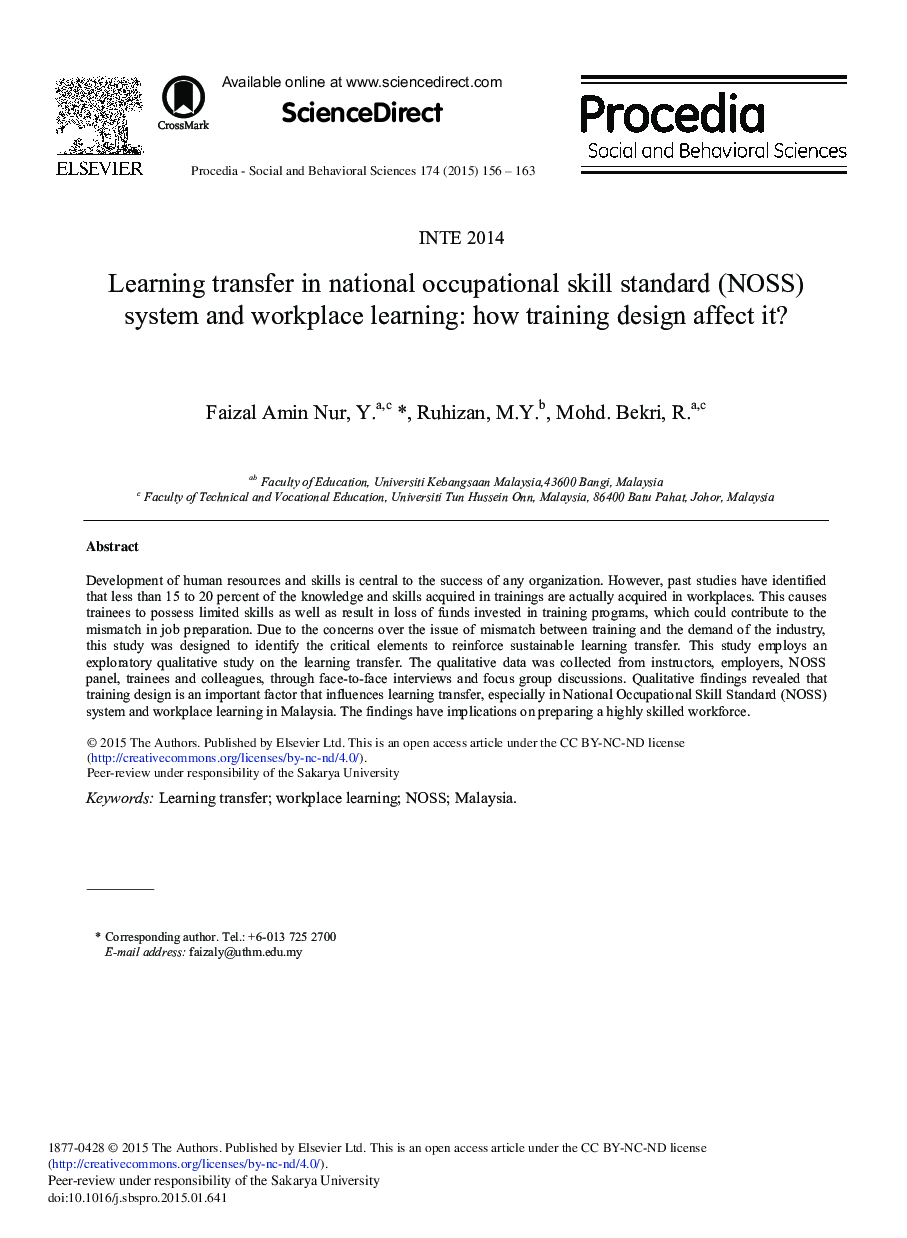| Article ID | Journal | Published Year | Pages | File Type |
|---|---|---|---|---|
| 1111217 | Procedia - Social and Behavioral Sciences | 2015 | 8 Pages |
Development of human resources and skills is central to the success of any organization. However, past studies have identified that less than 15 to 20 percent of the knowledge and skills acquired in trainings are actually acquired in workplaces. This causes trainees to possess limited skills as well as result in loss of funds invested in training programs, which could contribute to the mismatch in job preparation. Due to the concerns over the issue of mismatch between training and the demand of the industry, this study was designed to identify the critical elements to reinforce sustainable learning transfer. This study employs an exploratory qualitative study on the learning transfer. The qualitative data was collected from instructors, employers, NOSS panel, trainees and colleagues, through face-to-face interviews and focus group discussions. Qualitative findings revealed that training design is an important factor that influences learning transfer, especially in National Occupational Skill Standard (NOSS) system and workplace learning in Malaysia. The findings have implications on preparing a highly skilled workforce.
